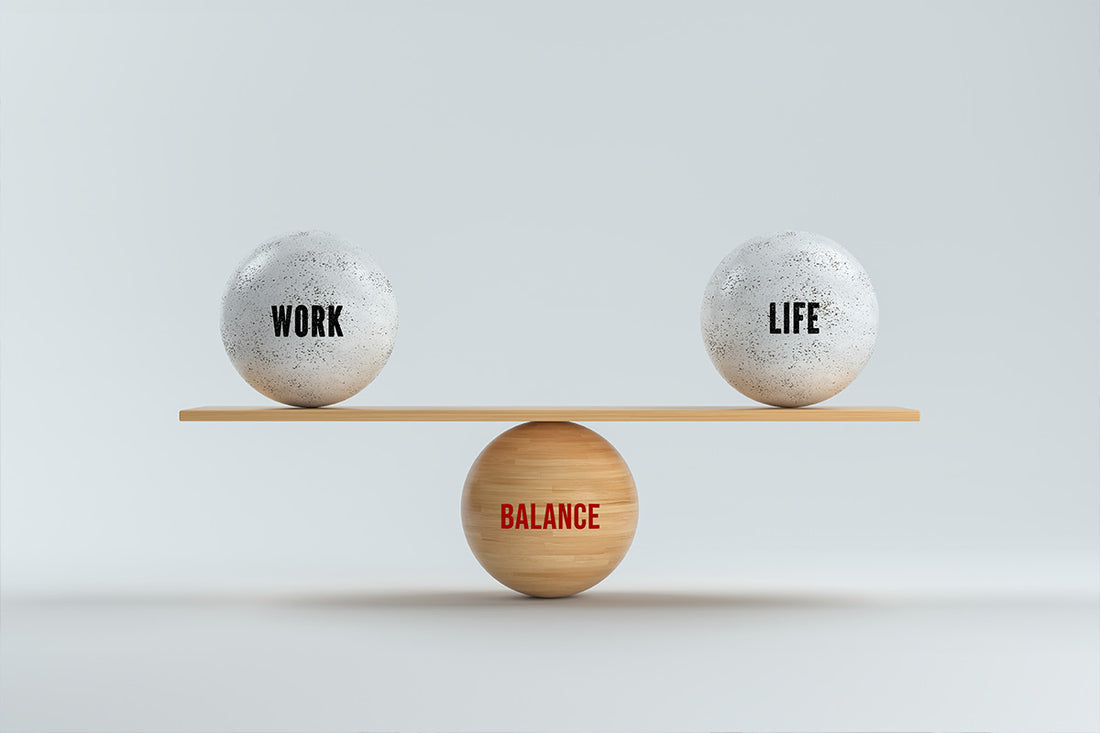These days, work-life balance seems to be a luxury. With technology, it’s already nearly impossible to completely disconnect from work, even on holidays and weekends. People struggle to maintain a work-life balance because of fear of losing their jobs. This fear encourages longer working hours, which causes stress and burnout. Read on to learn more about work-life balance in our nation and how to achieve it.
The Statistics
According to the Australian Institute of Health and Welfare, Australia ranked 27 out of 35 Organisation for Economic Co-operation and Development (OECD) countries when it comes to levels of work-life balance, making Australia at the bottom third of OECD countries when it comes to lengthy working hours. The same report also shows that in 2015, 20 percent of Australian men and 7 percent of women worked 50 hours or more per week, although the numbers have improved since 2004.
Why Work-Life Balance is Important
Skills You Need uses Maslow’s Hierarchy of Needs to explain the importance of work-life balance.
Maslow’s Hierarchy of Needs states that before fulfilling the needs of a higher section of the pyramid, the lower section should be achieved first. The source organisation explains that work is needed to fulfill the lower sections of the hierarchy: food, shelter, security, and even belongingness. However, the higher sections of the hierarchy are more difficult to achieve with work alone; a favourable lifestyle and leisure becomes the luxury. In a nutshell, work-life balance is a need tied to all our needs, so it’s important to maintain such.
Effects of Lack of Work-Life Balance in Health
Mental Health
Having too much time for leisure is just as detrimental as lack of time for it. Not having work for long periods of time can affect a person’s morale. On the other hand, working too much can cause stress and burnout which is highly related to mental health conditions. It can also affect one’s social life which is essential in maintaining a healthy mind.
Physical Health
Did you know that people can die due to too much work? Healthline narrated that in 2013, a 31-year old Japanese journalist died because of too much work. She only had two days of rest during a whole month. In fact, the Japanese have a term called “karoshi” which means sudden occupational death. This is the overwork-side of the spectrum. On the other hand, resting too much can also pose physical health problems like thyroid issues, heart problems and more.
How to Achieve Work-Life Balance
We have been talking bad news for a while now, so let’s now move on to the brighter side of things: you have the power to maintain a work-life balance! Here are ways to do so:
1. Manage Your Time
Work can be overwhelming, but there’s a way to manage this. Plan and organise your to-do list in a planner or a calendar and set realistic deadlines to yourself. Know which tasks to prioritise and follow this schedule. Make sure that you still have time to pause and breath from all of these.
2. Try not to be a Perfectionist
As a child, you may be an overachiever, trying to be productive even at your extra time after school and your hobbies. However, as we age, this gets harder to maintain. The pressures and responsibilities of life bubble up, and perfectionism becomes harder to reach. When unfulfilled, it becomes destructive in a form of being burned out. Rather than trying to be perfect at all aspects of your life, just focus on realistic goals. Rather than trying to be perfect, a jack of all trades, be excellent; be a master of one.
3. Disconnect from Technology When You Can
Indeed, technology has changed the course of life. It has positive effects like faster communication and innovation, but it also makes you accessible at all times. Your boss and co-workers can contact you anytime, even on your rest day. Try to unplug and develop a culture of respect for time in your organisation. It is also ideal to have a separate social media account where you are connected to your colleagues and supervisors so you can still have your personal space on social media.
4. Know Your Priorities
Identify which of your responsibilities you need to prioritise: is it a product launch, or your daughter’s graduation? There are many times that it’s more important to give time to your family. Don’t ruin your daughter’s childhood just because of an emergency meeting. It can wound her for the rest of her life.
5. Exercise and Meditate
Exercise and meditation can play a big role in maintaining a work-life balance. It helps reduce stress and pumps feel-good endorphins through your body. Exercise and meditation are a form of self-care, which is vital in taking care of your sanity.
6. Take a Break
Unplug from all your responsibilities and make time for yourself. Spend your vacation leave for a trip to the beach, or even just for a rest day at home.
THE BOTTOMLINE: Work-life balance may seem unattainable, but it is not. With time-management and self-care, you can make the most out of the time you have both for work AND play.










